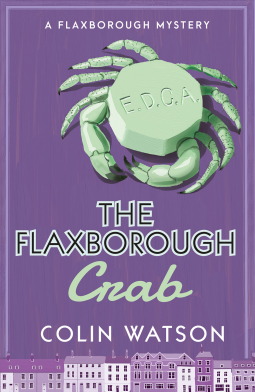Genre: Krimi
Goodreads meta-data is ‘The Flaxborough Crab’ is 176 pages, rated 3.98 by 110 litizens

‘Broomsticks over Flaxborough’ is 192 page, rated 3.95 by 103 litizens.

Verdict: No more.
I liked ‘The Flaxborough Crab’ for its mordant humour and sly exposition. A village doctor taking part in a clinical trial carefully prescribes a trial drug, and things get out of hand, or in hand. The drug has viagra side effects with the result that ….
Well, some of it is amusing. Some annoying, and some threatening. Despite the serious subject matter of sexual assault, not to mention murder, Watson manages to make it light hearted. No one is ever harmed because the codgers reacting to the drug are well past it try though they might. The palate darkens when the drug company intervenes to cover its error.
Especially amusing is the opening scene when a librarian deals with a would-be assailant by cracking his head against a tree. One to stop him and twice to get silly ideas out of what is left of his head.
After reading this guilty pleasure I tried ‘Broomsticks over Flaxborough.’ I found it less successful. It seemed padded with a parody of advertising speak that had nothing to do with either the place, the plot, or the principals yet on it went. The first few pages were amusing but the repetition soon put that paid.
 Colin Watson (1920-1983)
Colin Watson (1920-1983)
Watson’s characters are well drawn, but given too little to do, and there is virtually no policing. Just stirring around waiting for the villains to blunder.
There are ten of other titles in the series, and I am uncertain if I will continue with them.
Four of the Flaxborough stories were adapted for a short-lived BBC television series in 1977 called ‘Murder Most English: A Flaxborough Chronicle.’ There were seven fifty-minute episodes with Anton Rodgers in the lead. They are amusing, though sometimes hard to follow, and leaden in pace. Later episodes are enlivened a bit by Miss Teatime. The production values were Filene’s Basement. However the acting was superb from one and all, including the ever reliable Moray Watson. It was a precursor of ‘Midsomer Murders’ in its picture of the quaint English village as a satanic pit.
Skip to content
